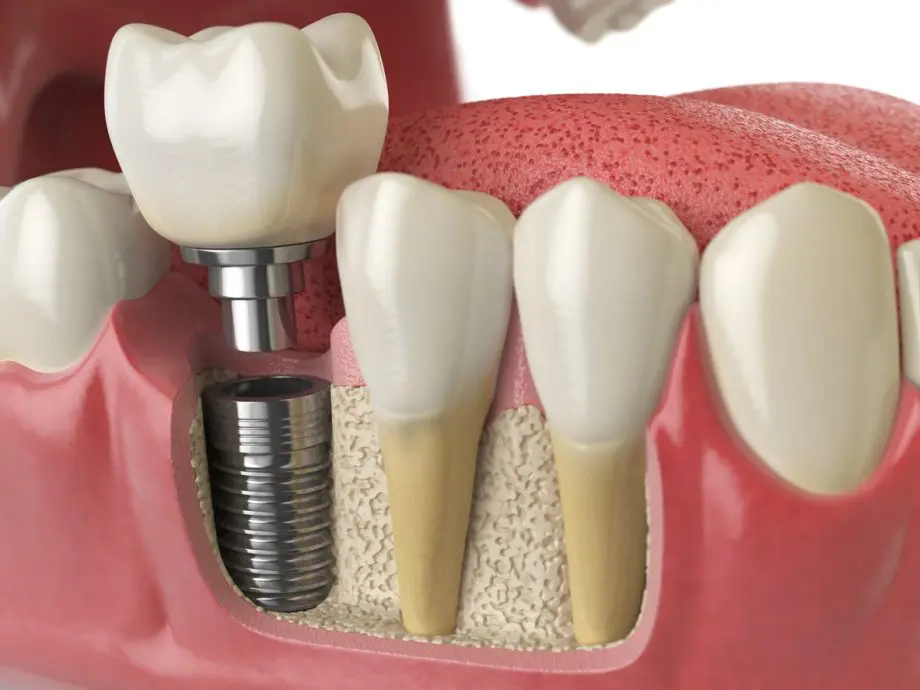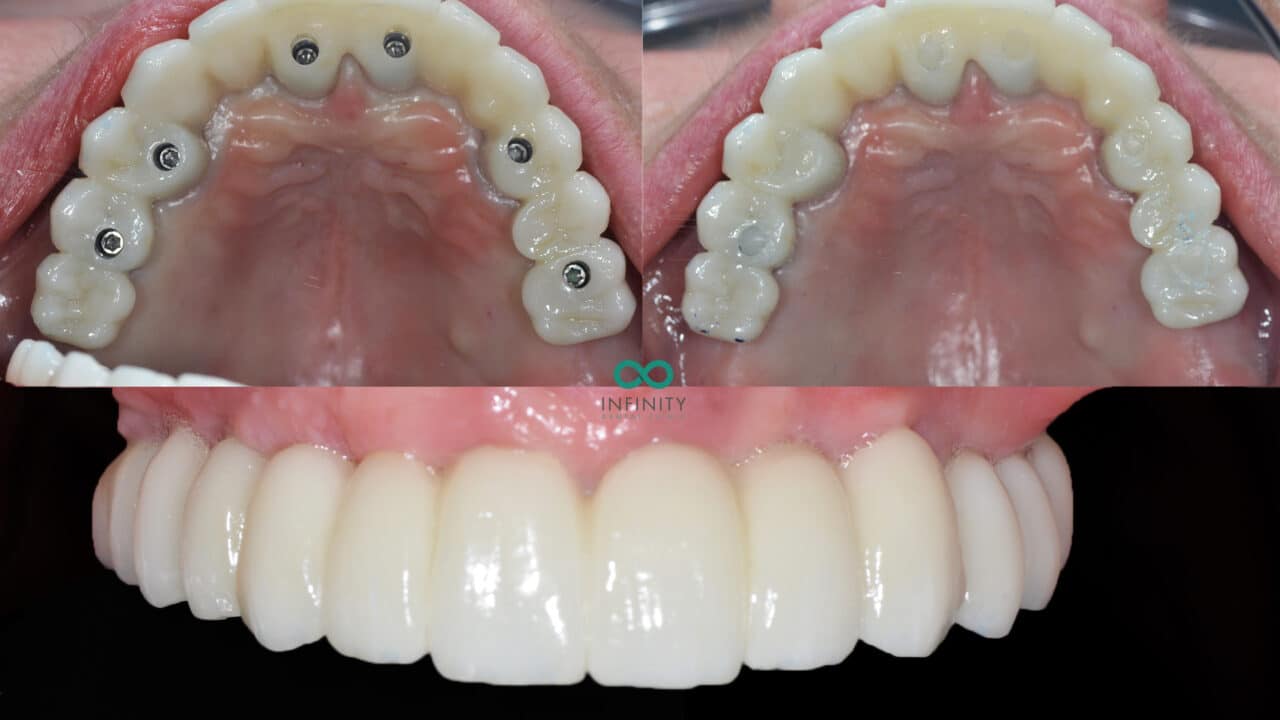Premier Dental Centerburg OH Dental Implant Benefits
Dentist Office Columbus OH What Are Dental Implants? Types, Benefits, and More
Dental implants have emerged as a well-liked choice for individuals in search of a long-term answer to tooth loss. One essential facet of understanding dental implants involves their impact on adjacent teeth. This is especially essential for ensuring the health and longevity of the complete dental structure.
When a dental implant is positioned, it mimics the function of a natural tooth root. By doing so, it helps maintain the integrity of the encircling bone structure. Natural teeth rely on a balanced, interconnected system for support, and dental implants can contribute positively to that dynamic. The stability supplied by the implant allows for better distribution of bite forces, which may prevent undue stress on adjacent teeth.
Dentist Office Hartford OH What Are Dental Implants? Types, Benefits, and More
In circumstances the place a tooth is missing, the neighboring teeth could shift into the vacant space. This shifting can lead to misalignment and numerous different complications. By placing a dental implant, the danger of this shifting is lowered, because the implant acts as a placeholder that preserves the natural alignment of surrounding teeth. This preventive effect is crucial for long-term oral health and performance.
Another necessary consideration is bone loss. When a tooth is lost, the jawbone in the area can begin to deteriorate due to an absence of stimulation. Dental implants assist prevent this bone loss by offering the necessary stimulation to the jawbone, very similar to a natural tooth root would. This preservation of bone not only supports the implant itself but in addition contributes to the steadiness of adjacent teeth.
The sort of fabric used in dental implants, sometimes titanium, has a singular property of osseointegration, that means it fuses with the bone over time. This integration offers a sturdy basis for the synthetic tooth whereas making certain that the implant doesn’t negatively affect surrounding buildings. As the implant integrates, it creates an surroundings that contributes positively to the health of the adjacent teeth.

Regular dental check-ups play an important function in monitoring the impact of dental implants on adjacent teeth. Professional assessments might help establish any points that may arise, making certain immediate treatment and maintaining the health of the whole dental arch. These evaluations would possibly embody X-rays to check for bone density and the overall condition of the implant and surrounding teeth.
Dental Center Condit OH Dental Implant Procedures
Oral hygiene practices are important for people with dental implants. Proper brushing and flossing habits not only contribute to the longevity of the implant but also ensure that adjacent teeth stay healthy. Food particles and plaque that accumulate around the implant could cause problems, including peri-implantitis, an inflammatory condition that can have an result on surrounding teeth and tissues.
The positioning of dental implants can influence the health of adjacent teeth. If an implant is placed at an angle or not correctly aligned, it might result in elevated pressure on neighboring teeth. This misalignment may cause wear and tear on adjacent enamel, doubtlessly leading to cavities or different dental points. Therefore, the skill and expertise of the dentist performing the implant procedure are paramount in reaching a successful outcome.
In some cases, further procedures could also be necessary to arrange the encompassing area for an implant. Bone grafting or sinus lifts may help create a better surroundings for the implant. While these procedures are geared toward enhancing the positioning for the implant, in addition they serve to protect the health of adjacent teeth by making a more stable basis.
Dentists Columbus OH Affordable Dental Implants: Finding the Best Value

As dental expertise evolves, advancements in implant techniques result in better outcomes. Improved imaging strategies and computer-aided design permit for more exact placements that minimize risk to adjacent teeth. With these developments, the likelihood of issues that could come up from improperly placed implants diminishes considerably.
Post-operative care also performs a critical position in ensuring that adjacent teeth stay unaffected. Patients should adhere to the dentist's instructions concerning food regimen, oral hygiene, and follow-up visits. Neglecting these pointers could lead to issues that influence not solely the implant but in addition the neighboring teeth.
Pediatric Dentist Condit OH Understanding Dental Implants: A Comprehensive Guide
In conclusion, dental implants, when placed correctly and cared for properly, have the potential to reinforce the health of adjacent teeth rather than detract from it. They keep alignment, stimulate bone growth, and provide a secure foundation that helps the complete dental structure. Understanding how dental implants affect adjacent teeth emphasizes their significance as a long-term tooth replacement resolution. With steady developments in know-how and methods, the integration of dental implants into restorative dentistry is becoming increasingly profitable, guaranteeing wholesome and useful smiles for years to return.

- Dental implants prevent adjacent teeth from shifting into the hole created by a missing tooth, serving to to keep up proper alignment within the mouth.
- The rebuilding of the jawbone by way of an implant can stimulate surrounding teeth and hold them healthy by providing essential bone density that may otherwise diminish.
- Adjacent teeth benefit from the stabilization that dental implants provide, decreasing the chance of put on and tear and tear from misalignment during chewing.
- Implants can protect adjacent teeth by acting as a framework, which may distribute chew forces evenly throughout the dental arch as a substitute of inserting undue stress on neighboring teeth.
- When positioned accurately, dental implants decrease the risk of gum disease which can have an effect on adjacent teeth by maintaining a clean and healthy gum line.
- The presence of an implant can facilitate an improved oral hygiene routine, as it eliminates the need for bridgework that could trap food particles around adjacent teeth.
- Regular dental check-ups can reveal how well the implant integrates with surrounding structures, ensuring ongoing health for adjacent teeth.
- Implants can prevent the natural process of bone resorption that occurs after tooth loss, positively impacting the stability and longevity of adjacent teeth.
- The use of dental implants might reduce the necessity for extra invasive procedures sooner or later, offering a long-term resolution that maintains the structure of the whole dental arch.
- Successful integration of an implant into the dental arch enhances general oral perform, typically resulting in improved confidence and oral health for adjacent teeth.undefinedHow do dental implants affect adjacent teeth?
What impact do dental implants have on the alignment of adjacent More Help teeth?
Dental implants typically prevent the shifting of adjacent teeth, serving to to hold up correct alignment. This stability can scale back the danger of developing bite points over time.
Can dental implants trigger injury to nearby teeth?
When placed accurately by a certified skilled, dental implants should not damage adjacent teeth - Dental Care Associate Centerburg OH. However, improper placement or inadequate planning could result in problems
Pediatric Dentist Pataskala OH Your Local Guide to Dental Implants
Do dental implants Continue require any special care regarding adjacent teeth?
Maintaining good oral hygiene is essential. Surrounding teeth must be brushed and flossed often, and routine dental check-ups will assist ensure that each the implants and adjacent teeth stay wholesome.

Will dental implants influence the health of my surrounding teeth?
Dental implants can enhance the health of surrounding teeth by distributing chunk forces evenly, lowering wear and tear. Additionally, they can prevent bone loss in the jaw, which may affect adjacent teeth.
Dentists Granville OH What Are Dental Implants? Types, Benefits, and More
Are there any long-term effects of dental implants on close by teeth?
Long-term, dental implants might help preserve the health of adjacent teeth by stopping shifting and potential gum issues, ultimately contributing to higher oral health general. - Family Dental Clinic Granville OH
Can gum problems come up around adjacent teeth after getting implants?
If correct dental care is neglected, gum points may develop round both the implants and adjacent teeth. Following post-operative care directions is important to reduce these risks.
Mono Dental Implants Johnstown OH Dental Implant Procedure: What You Need to Know Before Surgery
How do dental implants evaluate to bridges by means of adjacent teeth?
Dental implants are typically beneficial as they don’t require alteration of adjacent teeth, not like bridges, which necessitate reshaping of nearby teeth for help. (Mono Dental Implants Centerburg OH)
Can I Mono Implants Sunbury OH nonetheless get cavities in adjacent teeth if I have dental implants?
Yes, adjacent teeth can nonetheless develop cavities if not correctly cared for. Dental implants themselves can't get cavities, but they require vigilant hygiene practices to protect surrounding natural teeth.
What is the success rate of dental implants in relation to surrounding teeth?
The success rate of dental implants is high, however it largely is dependent upon the quality of the procedure and ongoing care. Well-maintained implants often result in higher outcomes for adjacent teeth as nicely.